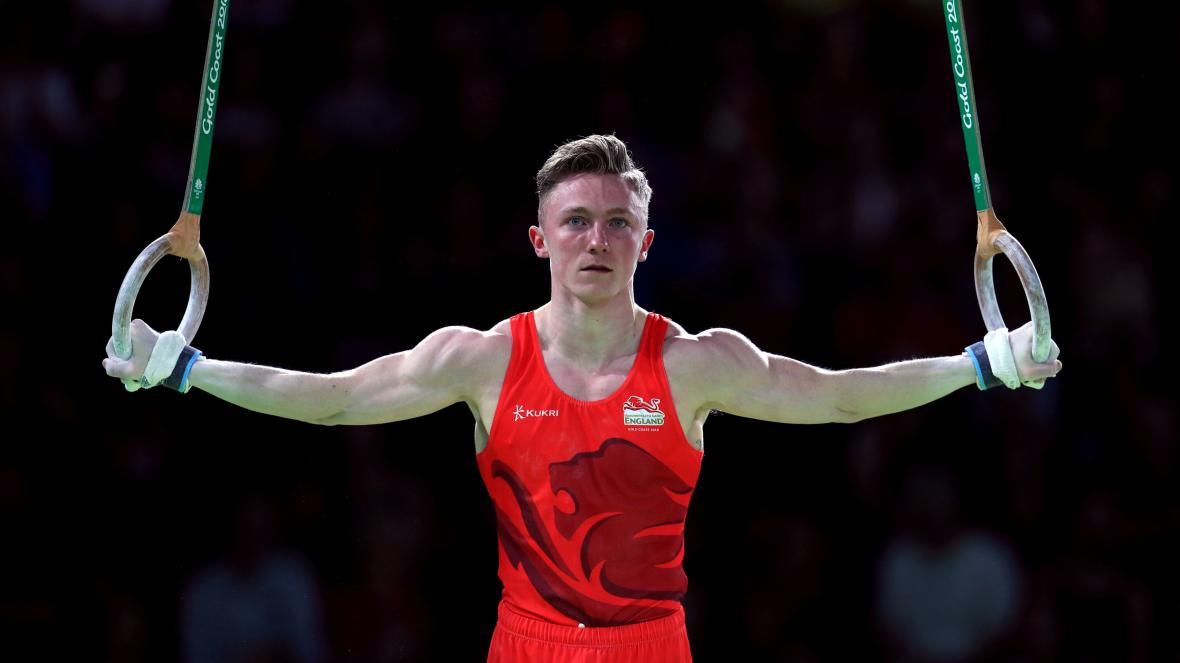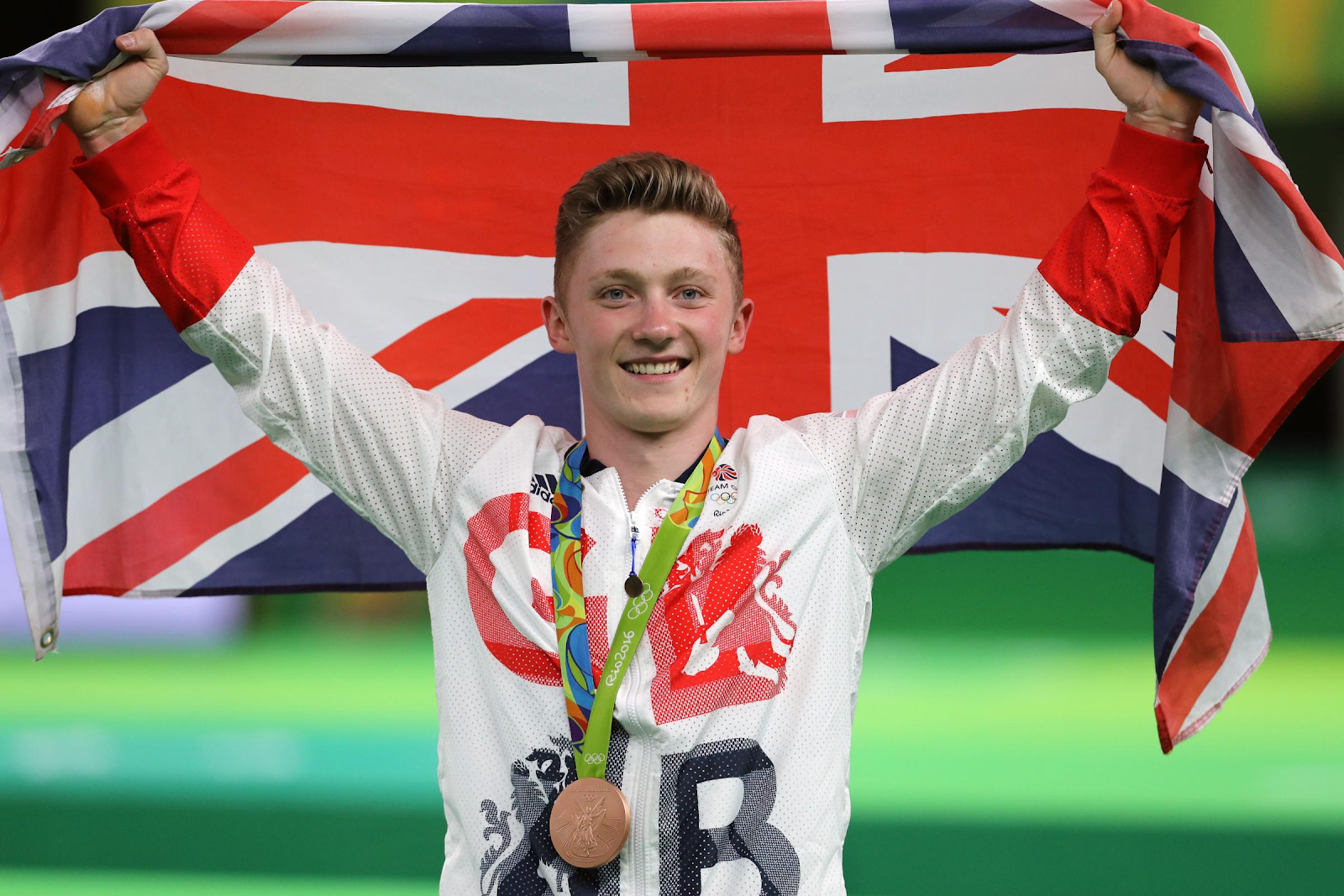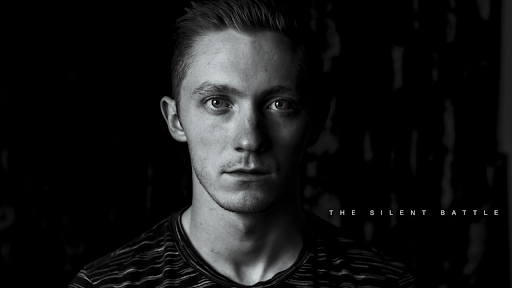The Acrobatics We Don’t See
June 15, 2010. A 14-year-old schoolboy uploads an amusingly enthusiastic gymnastics video to his YouTube channel. He has less than 100 subscribers.
August 30, 2017. An Olympic bronze-medallist posts a reaction to his seventh-ever video. As his teenage Doppelgänger pops up on screen, so too does a grin that would rattle a Cheshire cat. The gymnast is doing roly-polies down the aisles, and he’s not alone. The video has over 2 million views.
Upwards of 11,000 athletes locked horns at the 2016 Summer Olympic Games. Spectators and fanatics idolise them as real-life superheroes, and media showcases a jaw-dropping fortnight of sporting prowess before falling dormant for the next four years. We don’t see the broken neck, ankle and fingers, and we’re not there when palms are ripped open on high bar. Pursuit of an Olympic dream isn’t the typical Reason for Leaving scrawled on school forms at age 15.
Nile Wilson ‘changes the game’ because followers watched his struggle. He documented all these battles in more than 370 YouTube videos, yet despite this, bystanders were never fully aware of the psychological acrobatics he was also performing.

Born and raised in Leeds, England, Nile was one of the highest-profile gymnasts on the planet before he announced his retirement in January, 2021. He was the first Briton to win an Olympic medal on horizontal bar and bagged six medals at the 2018 Gold Coast Commonwealth Games. Through it all he amassed 1.44 million YouTube subscribers and motivated thousands of people across the globe – sixty seconds spent scrolling through his videos’ comments sections will confirm as much.

Post-Olympic depression is a notorious obstacle that greets athletes on the flip-side of gold-tainted aspirations. The HBO documentary The Weight of Gold is narrated and co-produced by the most laureated Olympian of all time, Michael Phelps, and it exposes this ‘epidemic’ of mental health issues currently corrupting elite sport. Suicide and depression affect as many as 9 in 20 high-performance athletes. Contestants of the Olympic Games are particularly vulnerable due to the publicity of their failures, lack of identity outside of their sport, and the emotional havoc that aligns with their ambition. A study published in 2019 in the British Journal of Sports Medicine found that stigma was the main deterrent for athletes seeking help. There’s the added fear that disclosing mental health issues reduces their likelihood to earn sponsorship or be chosen for major sporting events. This sentiment was reiterated by Nile himself in a BBC Sport interview, divulging the ‘culture of abuse’ in which athletes are ‘treated like pieces of meat’. In a powerful statement, he said ‘If I voice my concern, I may affect my selection for Olympic Games… It’s about fun, having a smile on your face, wanting to work hard, being excited to achieve, not scared that there’s going to be a consequence if you don’t.’
May 31, 2020. Over 1 million bright, red YouTube notifications ping onto the screens of The Wilsonator’s subscribers. They aren’t greeted by his familiar fervour, cheeky smile, and roar of Eyup YouTube, how ya doin’?! Y’alright? Instead he surfaces on-screen and an intruder inquires, ‘What’s your happiest memory from the last few years?’ He chuckles as a montage similar to the schoolboy’s rolls, with a backyard trampoline replaced by an Olympic vaulting table. The mirage dulls and an older man comes into view. He’s frowning, brows furrowed, eyes glazed over. The speaker interferes again – ‘How does it feel to hear your son considering suicide?’

The Silent Battle is an informal YouTube documentary about Nile’s difficulties with mental health and addiction throughout his career. It delves into the grim pressure he faced as a content creator and Olympian, a burden that ultimately brought him to the brink of taking his own life. When he started gymnastics, Nile’s parents hoped that taking part in the sport would cure his clumsiness, or at least teach him how to fall. It’s accomplished that, both literally and figuratively, but it hasn’t come without heartbreak.
King Midas hangs out with Rumpelstiltskin, The Three Little Pigs, and Little Red Riding Hood on children’s bookshelves around the world. His wish was to go for gold, and it ended in tragedy. What does it say when a fable and a life of athleticism are one and the same?
It yells that there’s an undiscussed culture of psychological harm in high-performance sport.
It screams that everything is Not. All. Right.

